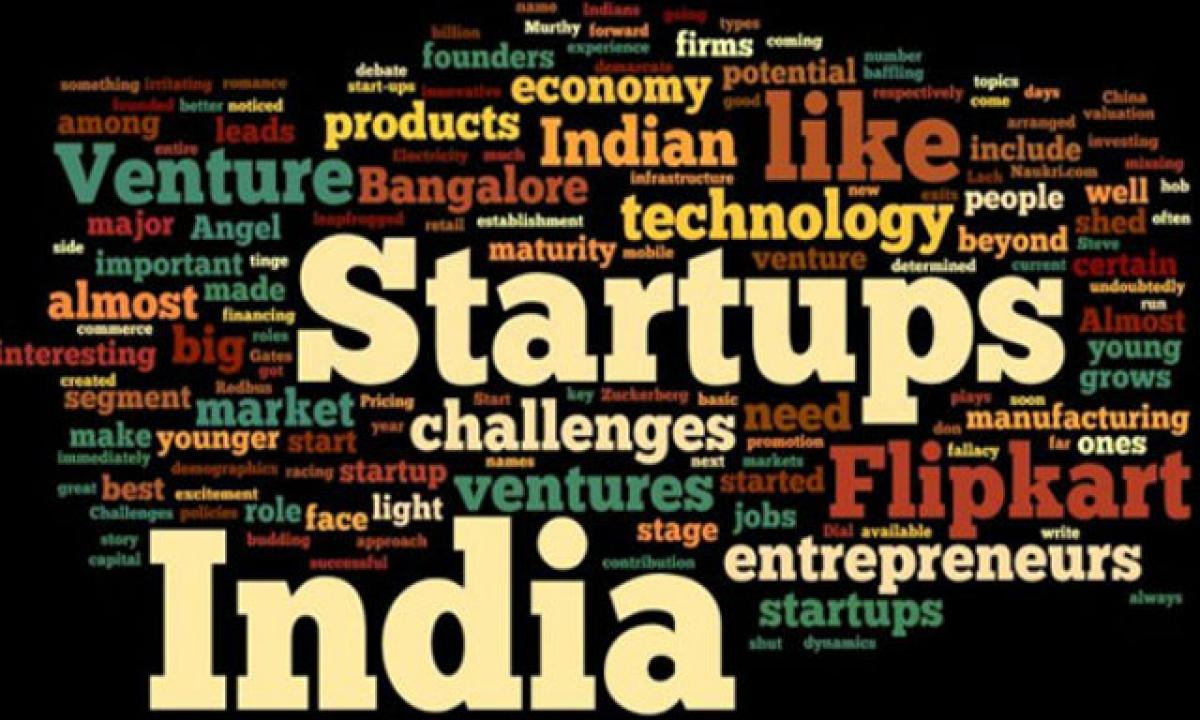Live
- Ahsaas Channaopens up about her complex character in ‘Mismatched 3’
- Radhika Apte welcomes first child, shares heartfelt post
- Jacqueline dazzles at Da-Bangg Reloaded concert
- Time to boost measures to prevent drowning, save children: WHO
- TDP achieves milestone with 73 lakhs membership registration, says Chandrababu
- South Korea: Main Oppn hails Yoon's impeachment motion passage as 'victory for people, democracy'
- RG Kar issue: Tension flared over parallel protests by Congress, SUCI(C) outside CBI offices
- After furore, Central Railway revokes order to raze Lord Hanuman Temple at Dadar
- Now hoteliers' body in Bengal's Alipurduar shut doors for Bangladeshi tourists
- District Collector Encourages Students to Utilize Government Facilities for a Better Future
Just In

For Kunal Shah, cofounder of online mobile recharge platform Freecharge, trust and openness are the foundation stones of his leadership style.
MUMBAI | NEW DELHI: For Kunal Shah, cofounder of online mobile recharge platform Freecharge, trust and openness are the foundation stones of his leadership style. Shah, the man who struck one of the biggest deals in consumer Internet space in India when Snapdeal acquired his company for an estimated $400 million, believes that in a startup, empowerment is not a word but happens by default.
“Trust to the point that scares you… and hire people smarter than you,” said the 32 year old, who did philosophy in college and then dropped out of his management course. “Leading in a startups is about extraordinary demonstration of trust,” Shah said.
“Result is the only thing I am worried about. How they do it is up to them,” said Jaydeep Barman, co-founder and chief executive of Faasos. Entrepreneurs do not want a boss to tell them what to do, and they should try to build the same culture within their own companies, he suggested.
According to Barman, his style his not always casual or light-hearted, but he does not challenge every decision. “I don’t dictate. We believe in joint problem solving … anyone can call me up without being afraid at any point of time,” he added. Azhar Iqubal, cofounder of Inshorts, leads his team by being a friend.
“Yet, I clearly define the professional expectations and desired outcomes,” said Iqubal. The company, which was started by three IIT alumni, has shown exponential growth in the last one year. The average age of its team of 60 is 24.
“The biggest responsibility of a leader is putting the right people on the right job and empowering them with the ability to make independent decisions … Each manager in our organisation is an entrepreneur in his or her own way because everyone is constantly focused towards making things better and quicker.”
Leadership experts say leading in startups and leading in large established organisations are two different ballgames. In startups, everyone has high energy and high level of excitement, so motivation isn’t a problem. “In a startup, it is easy to connect and get across a message,” said Vikram Bhalla, managing director at Boston Consulting Group India. However, the challenge for startups is that everything is fluid and hence everyone, including the leadership, needs to be flexible.
Also, the level of uncertainty of a startup is different from that of an established organisation. “In a startup, people pour in with ideas and we test out most ideas. Whereas in a large organization, you plan for a year and execute. Here on a daily basis you run experiments. For us things change every day,” said Barman of Faasos.
BCG’s Bhalla, an expert on leadership, said the key leadership tenets of a startup entrepreneur is passion for an idea as well as ability to execute and, most importantly, building a team. Leadership experts say that millennials look for open communication, flexibility, and empowerment.
“At UrbanClap, we openly talk about what is working well, what is not working well, gaps in our business model or understanding, my own shortcomings as a leader, etc. I openly talk about these things with everyone in my team,” said cofounder Abhiraj Bhal. “It helps build trust.”
For Suchi Mukherjee, CEO of LimeRoad, finding a great bunch of people, setting them a clear goal and managing the culture is the essence of leadership. “I encourage radical candor among my team which ensures everyone is completely transparent with each other in an extremely professional way,” said Mukherjee.
Finding the right talent is the key, she said. “Experience, for me, is secondary. It is more important to look for the growth potential of an individual. Then, there is continuous multi tasking. There are no clearly defined roles for every member of the team,” she said. “Every individual has to have a fighter gene to succeed. You have to be really passionate about what you are doing. And always be prepared for failures and learn to live with bad days.”
Source: techgig.com

© 2024 Hyderabad Media House Limited/The Hans India. All rights reserved. Powered by hocalwire.com







